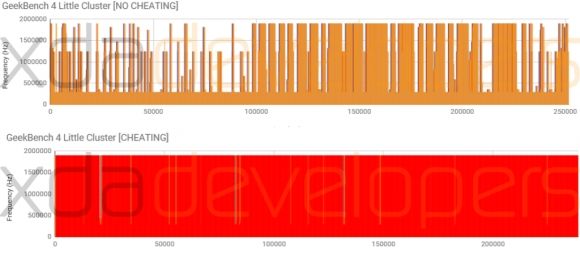OK, so you might have heard that a certain Chinese smartphone company called OnePlus just unveiled their brand new flagship smartphone called the OnePlus 5. It’s got a monster spec sheet including geek-gasm inducing words like “Snapdragon 835”, “128GB of UFS2.1 storage” and “8GB of LPDDR4X RAM” which looks great in a brochure.
Unfortunately, by now, you might also have heard that this very company has been accused of cheating on synthetic benchmark tests by rigging their device to “maximise performance” during certain benchmarks. This obviously caused an uproar because this isn’t the first time OnePlus had been caught red handed.
But my question is: How much does this matter to you the end consumer?
First, here’s some backstory. Thanks to some great investigative work done by the boffins over at XDA-Developers, OnePlus was found to have a specific benchmark cheating code that would allow the smartphone to perform in a state that it will not perform at when running day-to-day. This code allowed the smartphone do stuff like lock CPU clock speeds to their maximum value and even allow the GPU to run hotter than it normally does on other devices to bypass thermal throttling.
It is sort of like OnePlus was letting its phone go Super Saiyan when running certain applications.

This amounted to about a 5% increase in CPU multi-core performance (on GeekBench 4) without any significant changes in CPU temperature. On the GPU benchmark side, though, XDA-Developers found that the although it didn’t thermal-throttle, the OnePlus 5’s GPU was running at 50-degrees Celsius which makes it more than a little uncomfortable to hold.
But what does this actually mean in the real world?
In my experience, this could mean absolutely nothing. If you’ve ever read any of my reviews, you would probably have noticed that I don’t place much emphasis on benchmark performance mainly because I don’t think it accurately reflects real-world usage. Unless you’re a super heavy mobile gamer these numbers will often not mean anything to you. What’s likely more important is optimisation and efficiency. Besides, if you’ve seen any of the OnePlus 5 reviews that have come out, everyone is saying the same thing — the OnePlus 5 is super fast. And to be fair, the OnePlus did not cite benchmark numbers at all in their launch presentation nor did they make any benchmark claims on their product site.
Don’t get me wrong, I’m not making excuses for OnePlus nor am I saying that it’s OK for them to cheat. Cheating isn’t OK in any shape or form and the company’s official statement regarding the matter doesn’t really help their situation either.
What I am saying, though, is that just because you see an article with a fantastic headline about a manufacturer cheating, doesn’t mean you should lose your collective minds about it. Take a moment to think about how it would actually affect you. Take a moment to read and watch the reviews. Take a moment to remember that synthetic benchmarks are just that — synthetic.
It’s also worth pointing out that OnePlus aren’t the only ones who have been caught cheating as large manufacturers like Samsung and HTC have also been caught doing so. But again, does that extra 1-2% in a benchmark score really reflect daily performance?
The answer is no, so everyone needs to calm down about this.
[SOURCE]









